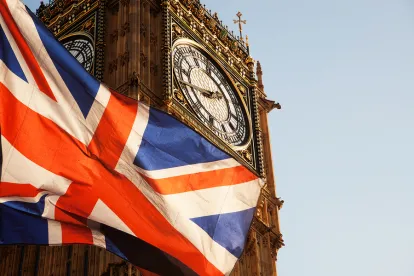In Sir Cliff Richard OBE v. The British Broadcasting Corporation and The Chief Constable of South Yorkshire Police [2018] EWHC 1837 (Ch) a UK court has ruled that the reporting by the BBC of a police investigation (which was later closed without prosecution) into Sir Cliff Richard and televised search of his home using a helicopter flying above it violated his right to privacy flowing from Article 8 of the European Convention on Human Rights.
The import of the findings in the judgment mean that, broadly speaking, unless there are exceptional circumstances someone under criminal investigation should not have that fact made public and covered by the media - even if the subject of the criminal investigation is a celebrity or other public figure.
While the judgment does not mean that the right to privacy in criminal investigations can never be displaced (and there will be balancing factors to consider in individual cases which are highlighted below) the result is welcome news to anyone finding themselves under police investigation. As the judge in the case observed:
As a general rule it is understandable and justifiable (and reasonable) that a suspect would not wish others to know of the investigation because of the stigma attached. It is, as a general rule, not necessary for anyone outside the investigating force to know, and the consequences of wider knowledge have been made apparent in many cases... If the presumption of innocence were perfectly understood and given effect to, and if the general public was universally capable of adopting a completely open- and broad-minded view of the fact of an investigation so that there was no risk of taint either during the investigation or afterwards (assuming no charge) then the position might be different. But neither of those things is true. The fact of an investigation, as a general rule, will of itself carry some stigma, no matter how often one says it should not.
The Legal Framework
In a nutshell both Sir Cliff Richard and the BBC claimed competing rights under Human Rights law in the UK and each contended that theirs trumped the other.
Sir Cliff relied on Article 8 of the European Convention on Human Rights introduced into English law by the Human Rights Act 1998 which provides the right to respect for private and family life as follows:
-
Everyone has the right to respect for his private and family life, his home and his correspondence.
-
There shall be no interference by a public authority with the exercise of this right except such as is in accordance with the law and is necessary in a democratic society in the interests of national security, public safety or the economic well-being of the country, for the prevention of disorder or crime, for the protection of health or morals, or for the protection of the rights and freedoms of others.
Importantly the court ruled, “…on the authorities, and as a matter of general principle, a suspect has a reasonable expectation of privacy in relation to a police investigation....”
The court did acknowledge that there was not an invariable right to privacy in such circumstances and referenced examples including where there is an operational reason for disclosure e.g. an immediate risk to the public. Another example would be where the police sought publicity to encourage other suspected victims to come forward; though that was not the case here.
The BBC’s competing right was of freedom of expression:
-
Everyone has the right to freedom of expression. This right shall include freedom to hold opinions and to receive and impart information and ideas without interference by public authority and regardless of frontiers. This Article shall not prevent States from requiring the licensing of broadcasting, television or cinema enterprises.
-
The exercise of these freedoms, since it carries with it duties and responsibilities, may be subject to such formalities, conditions, restrictions or penalties as are prescribed by law and are necessary in a democratic society, in the interests of national security, territorial integrity or public safety, for the prevention of disorder or crime, for the protection of health or morals, for the protection of the reputation or rights of others, for preventing the disclosure of information received in confidence, or for maintaining the authority and impartiality of the judiciary.
The fact of a search which had been authorised by the court did not alter the position and would not, even if the search was conducted in public (for example, observed by neighbours etc.).
In order to balance Sir Cliff’s right to privacy against the BBC’s right to freedom of expression the court weighed a number of factors, detailed below, and also Section 12 of the Human Rights Act 1998 which provides that:
The court must have particular regard to the importance of the Convention right to freedom of expression and, where the proceedings relate to material which the respondent claims, or which appears to the court, to be journalistic, literary or artistic material (or to conduct connected with such material), to—
(a) the extent to which—
(i) the material has, or is about to, become available to the public; or
(ii) it is, or would be, in the public interest for the material to be published;
(b) any relevant privacy code.
A summary of the criteria relevant for the balancing exercise when weighing up the competing right to privacy versus the right to freedom of expression are:
(a) Contribution to a debate of general interest
On this point the judge noted that this fell into two parts, first whether the report of an investigation into an unnamed celebrity would fall into the public interest and second, whether the element of identifying the individual fell into the public interest. While the first test was met, the second was not.
(b) How well-known is the person concerned and what is the subject of the report?
The court noted that just because someone is a public figure it isn’t the case that that person gives up privacy across the board. Instead, it depends on the extent of the self-induced publicity, the areas where there has been a voluntary surrender, and the degree of it. Put another way, there are areas of life of a public person which can appropriately remain private. Importantly, unsubstantiated allegations, or investigations into unproven conduct did not justify an invasion of Sir Cliff’s privacy.
(c) Prior conduct of the person concerned.
The conduct of the person concerned prior to publication of the report or the fact that the photo and the related information have already appeared in an earlier publication are factors to be taken into consideration. However, the mere fact of having cooperated with the press on previous occasions cannot serve as an argument for depriving the party concerned of all protection against publication of the report or photo at issue.
(d) Method of obtaining the information and its veracity.
It was significant in this case that the publication started with a leak of information from someone who ought not to have revealed it, and confirmed and bolstered with a ploy on the part of the journalist in the form of a perceived threat (of publication) that ought not to have been made.
(e) Content, form, and consequences of the publication.
The way in which the photo or report are published and the manner in which the person concerned is represented in the photo or report may also be factors to be taken into consideration.
(f) Severity of the sanction imposed.
Lastly, the nature and severity of the sanctions imposed are also factors to be taken into account when assessing the proportionality of an interference with the exercise of the freedom of expression.
It was held that this did not tilt the balance back in favour of the BBC.
Applying these criteria to the specifics of the Sir Cliff Richard case and striking the balance the court held that the consequences of disclosure are capable of being and were, for Sir Cliff Richard, very serious, as they would be for anyone.
The BBC argued that disclosure was in the public interest, and while the court held it was not, it went on to say that even if there were a public interest it would have been heavily outweighed by the seriousness of the invasion of privacy.
In short, the BBC lost.
A BBC statement summarised the importance of the judgment in this case:
Today's judgement is very significant.
The judge found it was not merely the BBC's use of helicopter pictures which breached Sir Cliff's right to privacy. The simple naming of Sir Cliff as a suspect in the police investigation amounted to a breach of his privacy.
It means, going forward, people who are suspects in police investigations, save in exceptional circumstances, are entitled to reasonably expect the matter is kept private and not covered by the media.
That is why the BBC is broadening this out and saying, in effect, this is a dark day for news reporting.
While the BBC may consider it a dark day for news reporting for those subject to police criminal investigation, whether they be private citizens or public figures, privacy advocates will consider the judgment to be an important layer of protection and supports both individual privacy rights and the presumption of innocence before being proven guilty.



 />i
/>i

